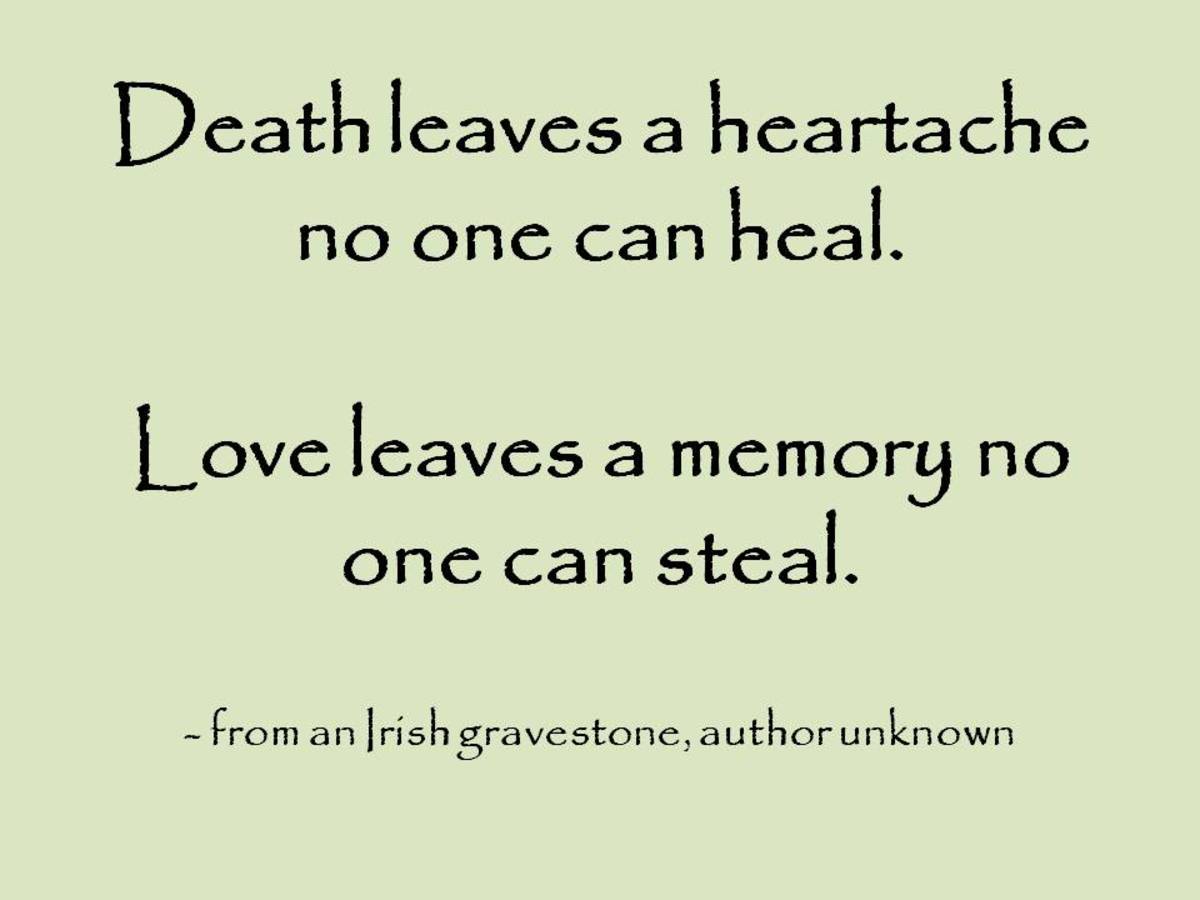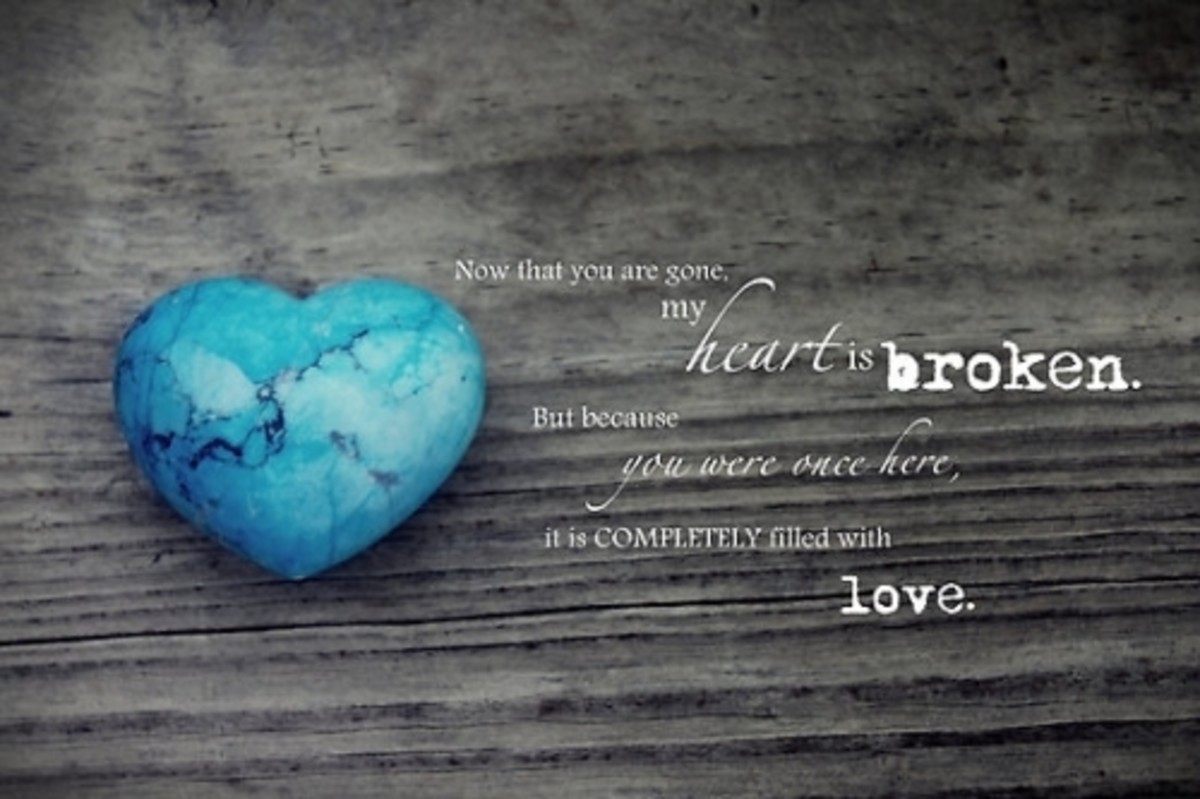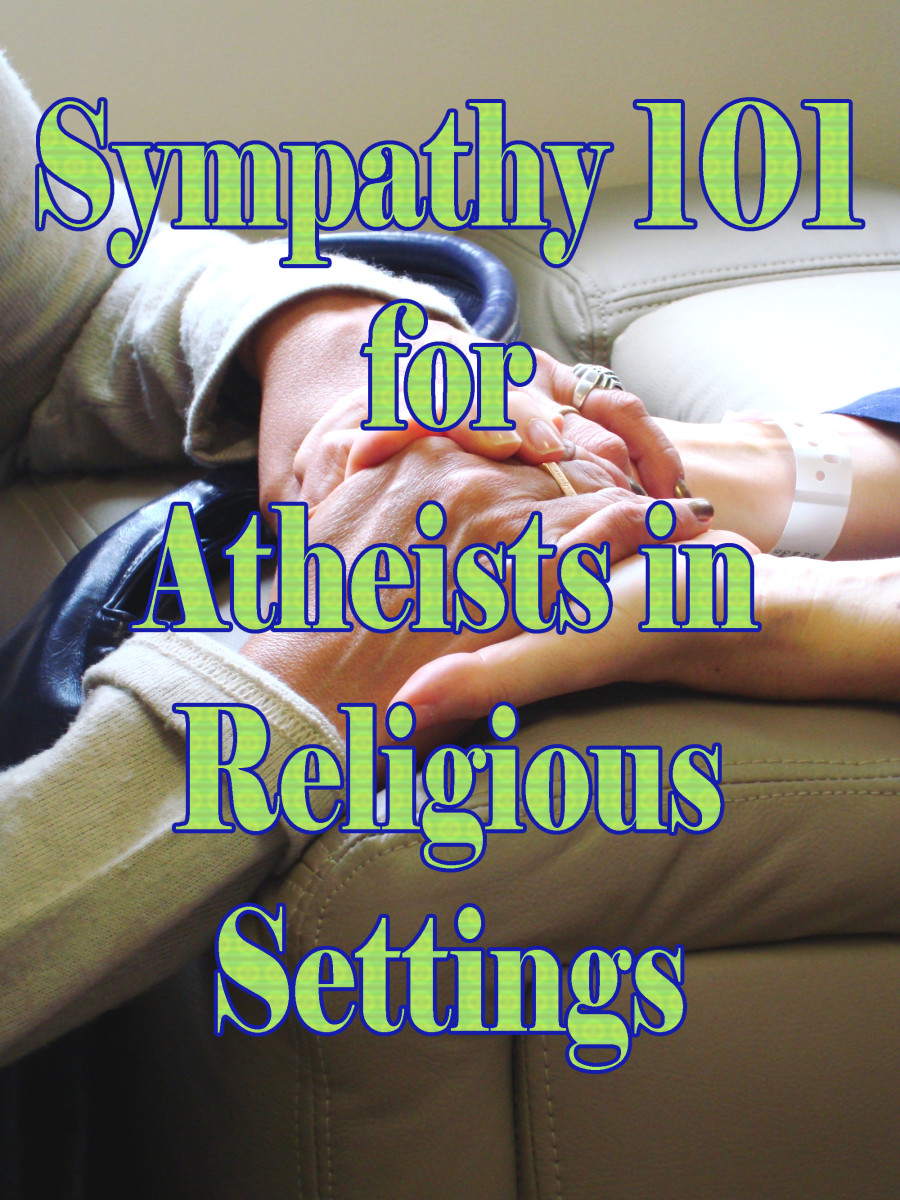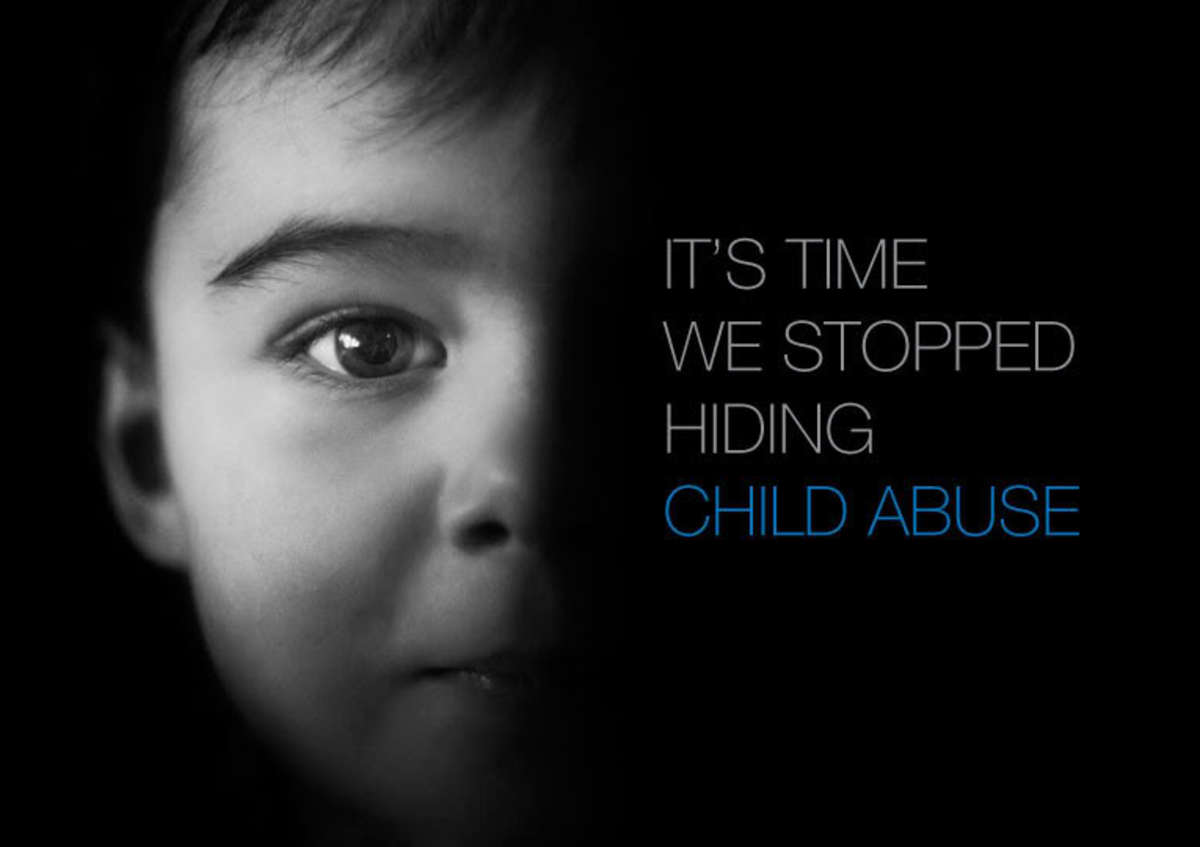Adjusting to Life After Loss
If There Life After Loss?

Loss Changes Us
Loss takes from us that which is most precious. Whether death, divorce, abandonment, or dismemberment, the resulting vacuum can suck the life right out of us. In order to find enjoyment again in life, we make major adjustments. These include but are not limited to changes in our:
- Traditions
- Relationships
- Routines
- Thoughts
As we grow in our understanding of these changes, we expedite the adjustment process, and bring peaceful resolution to the difficulties we are facing. No matter what we do, it will take time, courage, and perseverance. Change is not easy, especially when loss touches that which is most intimate in life.
Loss Changes Our Traditions
Traditions are the stuff of which life is made. They encompass special occasions and daily activities, involving all of our senses in a most pleasant mixture of sights, smells, feelings, and moods. These memorable events that solidify the family unit often revolve around holidays and holy days.
When someone who has been a significant part of our traditions is gone, we feel vulnerable, unsure of how to proceed. The closer the loss is to us, the more dramatic are its affects. We fear that life will never be the same, that we will not experience happiness and joy again because the person who was such a large part of it is no longer with us.

Adjusting Traditions
In order to adjust, we re-define what these traditions mean to us, and how we can adjust them to bring us joy and happiness once again. We ask the questions:
- Is it possible to continue the tradition? If so, how?
- Would continuing the tradition bring such painful memories that it is better to let it go?
- Can the tradition be modified in such a way that it is better for all involved?
- Is there another tradition that can take its place?
As we ask ourselves these questions, we bring resolution to the change process more quickly, and move on with our lives. As generations of family members come and go, traditions by nature evolve. The choice is ours, and we need not feel obligated, or even pressured, into continuing something that is no longer valid for our current situation.
Loss Changes Relationships
Both birth and death take us from one stage of life to another. We move from our family position as children and siblings to parents as we marry and have children of our own. We move from the parent and aunt/uncle phase to take the position of the older generation as they pass from this life.
Sometimes these adjustments come prematurely, as in the case of the unmarried having children, or of parents passing away before grandparents. At times like these, we adjust our relationships in order to move past our loss. The table below shows what some of these changes are and how they affect our everyday lives.
Family Position
| Responsibilities
| Future Role
|
|---|---|---|
Grandparent
| Support families of children
| Leave a legacy to the younger generation
|
Parent
| Bear and rear children
| Take care of aging parents
|
Oldest child
| Take care of younger siblings
| Replace the parent as head of the family
|
Middle child
| Learn from older siblings' experience
| Keep peace between older and younger siblings
|
Youngest Child
| Be willing to have more than one parent
| Learn independence
|
Adjusting Relationships
When someone in our own generation passes away, we often feel a keen sense of vulnerability, knowing that at any time, we could be next. Our natural instinct is to withdraw from others, and bide our time until "our day" comes. This is a great tragedy. It is far better to seek out our loved ones, spend additional time with them, and increase the legacy that we are leaving to them.
The day will come when we may feel very alone, either due to the death of a spouse, or a child in our immediate family. These types of losses bring poignant feelings of isolation. Although it may be painful to go outside of our comfort zone and meet new people, our personal ability to adjust depends on our going through this process. We may have to leave the familiarity of our home and even our community for a time, to find the strength needed to move on.

Loss Changes Routines
When someone we love dearly leaves us, we may have to change the way we live, especially if we have spent a great deal of time caring for them. This is the case if we have had an aging parent living with us for a number of years, or experience the death of a young child.
The void that is created when our caring is no longer needed may affect our feelings of self-worth. Thoughts of helplessness, hopelessness, or worthlessness lead to depression and anxiety. These are red flags for possible self-harm, and should be taken seriously. Seek immediate medical intervention if this is the case.
Adjusting Routines
The daily routines of sleeping, eating, bathing, dressing, and taking care of oneself need to continue, even though the companions with which we do these things are no longer with us. Family members would do well to stay with a loved one for a time after they experience the death of a spouse or child to ensure that these routines continue. Otherwise, illness may easily set in, and further complications occur.
Life is seen through different eyes after loss. There are sights, smells, and sounds that are no longer part of our lives. We miss them, and the tears flow readily. We notice things we didn't notice before. We may find ourselves wandering around aimlessly, as the person we lost helped provide us with meaning, purpose, and direction.
To counteract these feelings, look for things that bring joy and happiness, little things that make us smile. Once we figure out what these are, new habits, routines, and interests will help us move forward with our lives.

Loss Changes Thoughts
Changing thoughts is probably the most difficult thing we deal with after a loss. We are on "automatic" when we go throughout our daily lives. Only when we are interrupted by the unexpected do we realize that our thoughts are part of our conscious beings. With loss, we don't think the same anymore.
Loss brings with it many ramifications, including the workings of grief and mourning. The changes in our feelings may be abrupt and happen unexpectedly. We may be happy and smiling one moment, and in the depths of despair the next. The only way to work through these feelings is to adjust what we are thinking about at the time. Each instance brings with it new memories, new issues to resolve, and new decisions to make.
Adjusting Thoughts
Understanding our thought processes is the first step in changing them. Beliefs are the seeds of our thoughts, and our actions are the plants that grow from them. If we find that we continue on a downward spiral of negativity, check for distorted thinking patterns. No one is immune from having these types of issues, especially when suffering after a loss.
Our ability to turn to our Maker for comfort will also expedite adjustment. When we look to the heavens for strength, guidance, and peace, we are filled with wonder and awe at the great plan of mercy that rains upon us in our time of drought. The living water that bathes our parched souls during these moments renews our faith and hope.
Life will be beautiful once again. Adjusting our traditions, relationships, routines, and thoughts, we find peace and happiness after loss. Start today!
This content is accurate and true to the best of the author’s knowledge and does not substitute for diagnosis, prognosis, treatment, prescription, and/or dietary advice from a licensed health professional. Drugs, supplements, and natural remedies may have dangerous side effects. If pregnant or nursing, consult with a qualified provider on an individual basis. Seek immediate help if you are experiencing a medical emergency.
© 2014 Denise W Anderson







